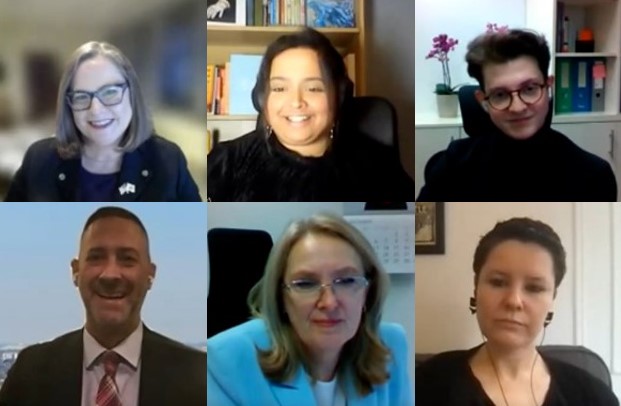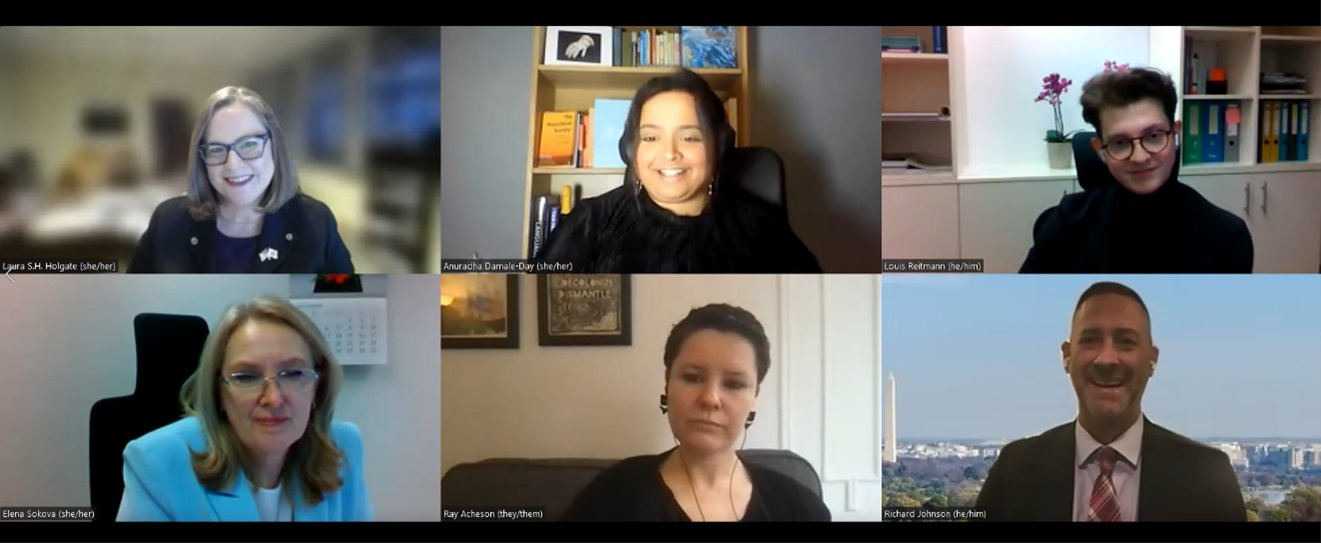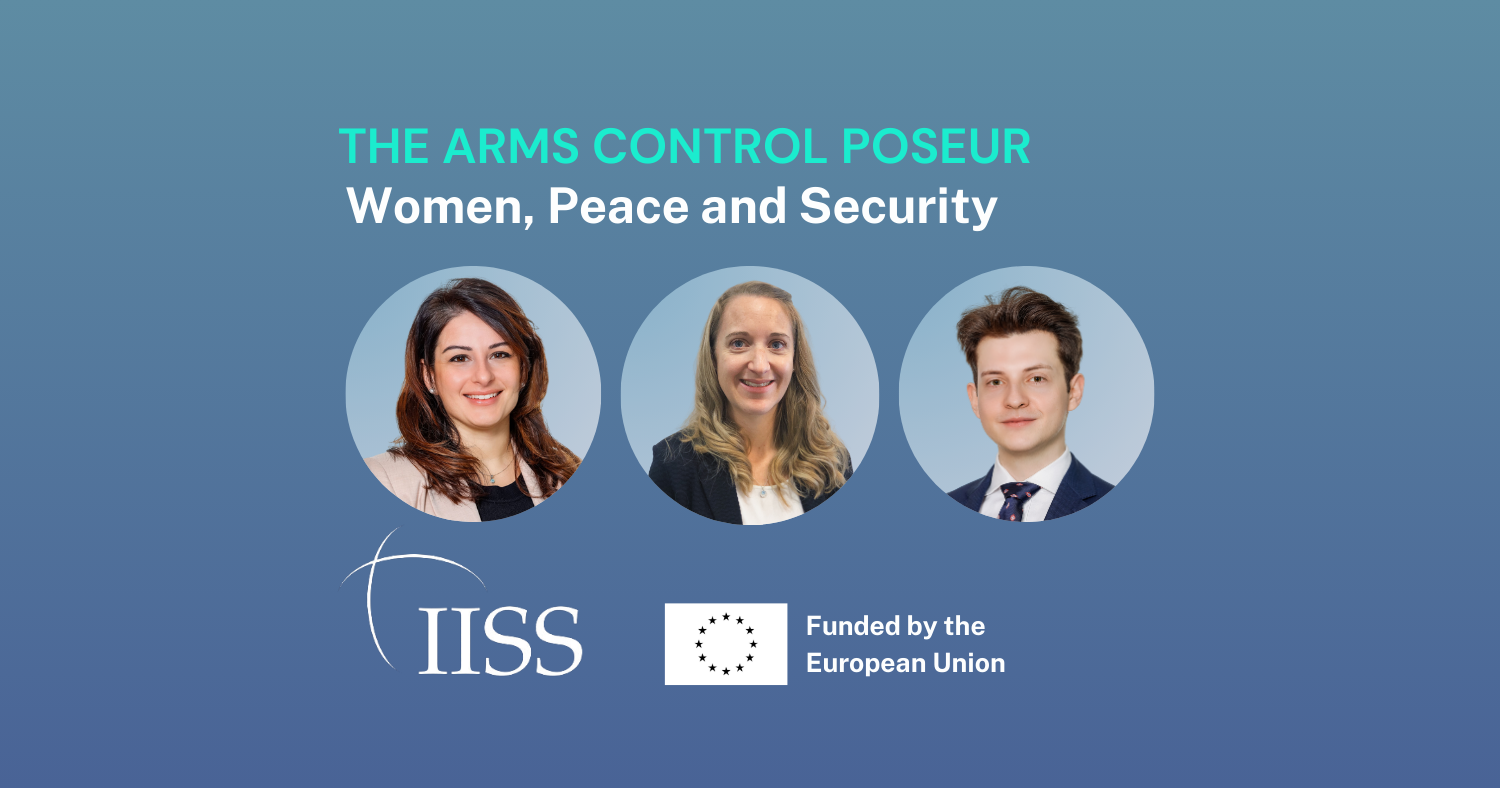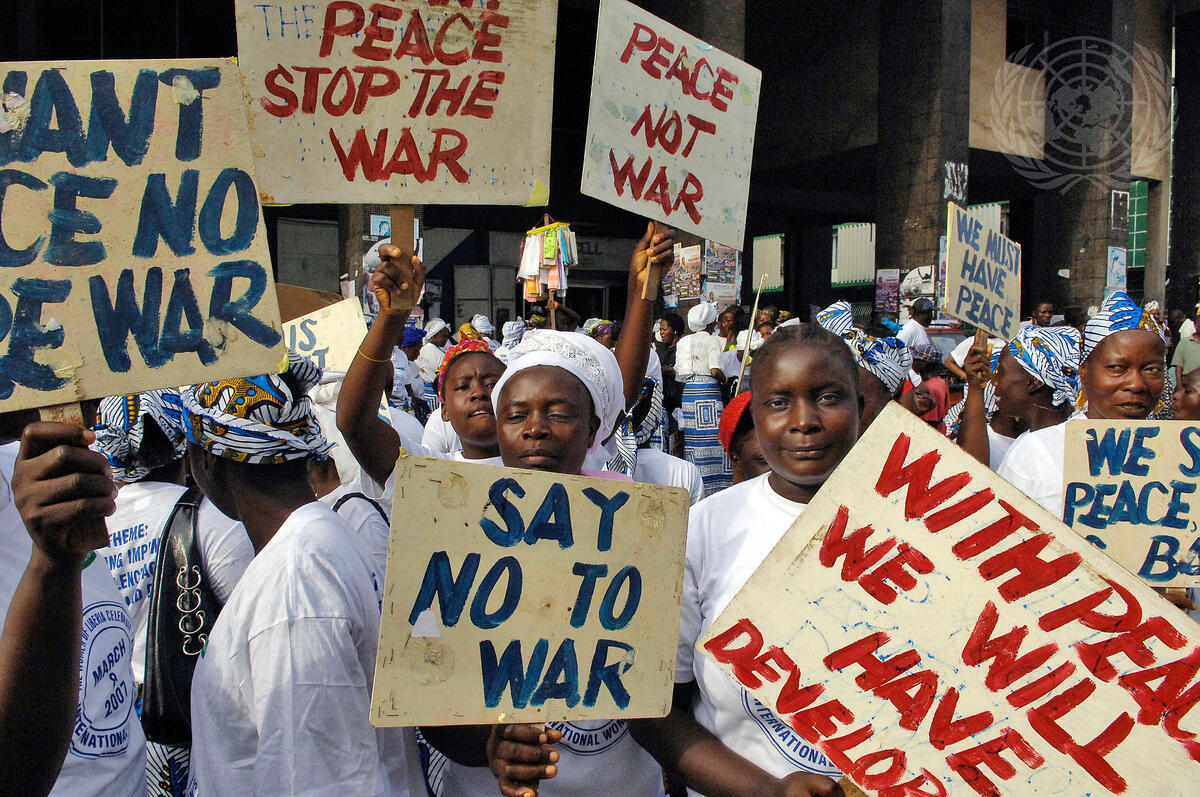
Governments, international organisations and the nuclear expert community are paying increasing attention to the value added by prioritising diversity, equity and inclusion (DEI). A less‑discussed aspect of this is queer identity, encompassing those who are not heterosexual or cisgender. On 6 December 2022, the VCDNP hosted a panel discussion on queer identity in the nuclear weapons space to reflect on progress made, current challenges and ways to move forward. The event was moderated by VCDNP Research Associate Louis Reitmann (he/him).
The discussion explored the policy benefits of creating diverse teams, the valuable life experiences queer people bring to the table and how queer representation can be boosted within international organisations and institutions. The panellists shared personal stories about challenging and exclusionary conditions and finding acceptance in the nuclear policy community, as well as the ways in which allyship by straight and cisgender colleagues supports the LGBT+ community.
The panellists were:

VCDNP Executive Director Elena K. Sokova opened the panel discussion, stressing its timeliness and necessity, particularly given the response to the event announcement on social media. She recalled that queer people had long been excluded from nuclear policy making and diplomacy. Because of their identities, they were considered unfit to work in the historically male, heteronormative international security space. While there has been progress in this area, there is still a long way to go to achieve full inclusion, participation and visibility for queer people in nuclear policy.
Deputy Assistant Secretary Richard Johnson reflected on progress made in the last 15 years. He noted that being queer used to be a “blackmailable” offence – that the US government used to consider queer identity as a weakness in civil servants because knowledge of it could be used as leverage. While this is no longer the case, working in diplomacy in countries or with counterparts unaccepting of queer people still poses challenges. He emphasised that DEI is about including and attracting top talent from all backgrounds to join the nuclear field. He stressed the value of queer visibility through mentorship by senior colleagues and through organisations like Out in National Security. Often having to fight for their seat at the table, queer people also bring valuable experiences in communicating with diverse audiences and including different perspectives into policy spaces.
As an ally to the queer community, Ambassador Laura Holgate laid out five arguments for why DEI should be a strategic choice for organisations, including in the nuclear field.
Ray Acheson explained the origins of queer theory, its perspective on nuclear weapons and how queer people have come to play a leading role in the nuclear disarmament movement. Queer theory is about challenging dominant narratives, encouraging questions about who benefits from those narratives and whom they disadvantage. Thereby, queer theory helps to break down binary choices (such as nuclear war or nuclear deterrence) and unpack why other options are excluded in the first place. They also addressed the pressures queer people and others face to edit themselves and conform with mainstream role expectations when working in high-level spaces, such as in the United Nations.
Watch the full recording of the webinar below.

